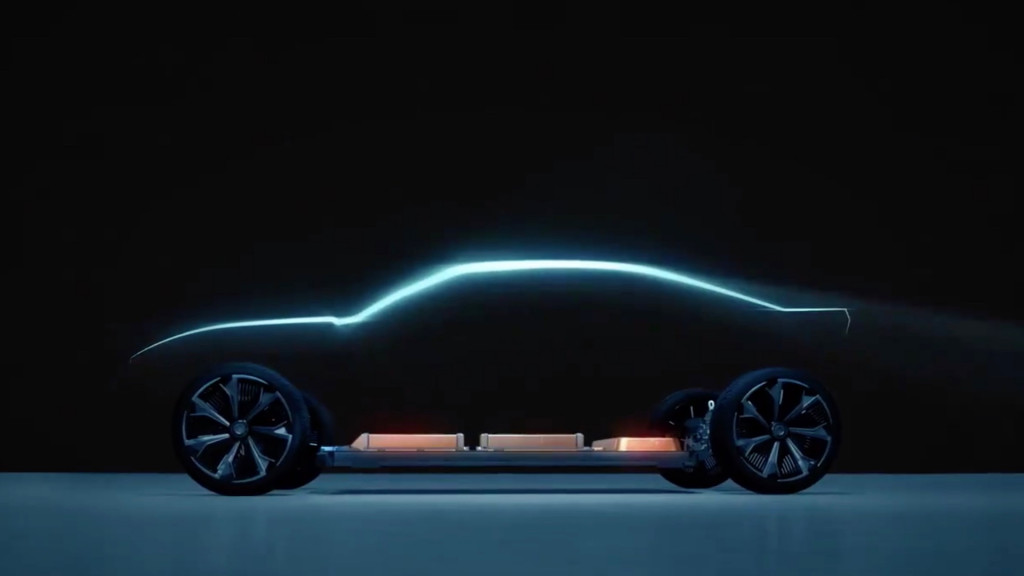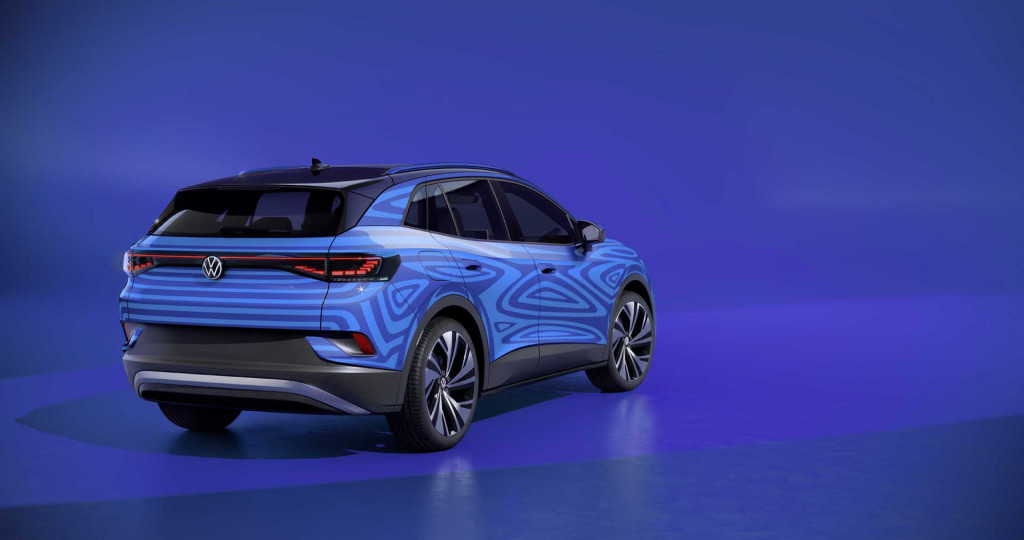What will Volkswagen call its upcoming electric crossover headed to the U.S. this year?
Which automaker is planning to step up sustainable materials on its mainstream models?
This is our look back at the Week In Reverse—right here at Green Car Reports—for the week ending March 6, 2020.
By far the most significant event in our coverage this week was GM’s EV Day, in which the company detailed its third-generation (BEV3) electric-vehicle foundation and core Ultrium propulsion components—plus a no-cameras look at an upcoming EV portfolio of a dozen vehicles due by calendar-year 2025. And that’s just the start.

Possible electric Chevrolet Camaro in GM Ultium teaser video
Earlier in the week, GM announced an initiative to effectively triple the amount of workplace charging it’s going to offer its employees.
There were quite a few pieces of hopeful news involving production-bound electric vehicles this week. Ford told us where orders for its Mustang Mach-E electric SUV are coming from; it told us that demand for the upcoming model spans all 50 states. And it announced that it will be introducing an all-electric version of its Transit van—amounting to some very quiet, tailpipe-emissions-free deliveries—for the 2022 model year.

VW ID.4 crossover
Volkswagen also finally confirmed the ID.4 name for its compact electric crossover based on the ID Crozz concept—still due by the end of the year in the U.S.
Two different startup electric automakers this week stepped forth with long-awaited details about how they’ll be selling and servicing their vehicles. Byton will use dealer groups in Europe, and it’s expected to use a similar approach in the U.S. when it arrives by the end of 2021. Meanwhile Lucid described a strategy, with a boutique-like retail experience plus service depots and mobile support—a lot like Tesla in its early days, but more lux.

Lucid Studio - Newark, CA
This week would have been the Geneva Motor Show, but with the show among many international events canceled due to the coronavirus, many automakers went ahead with their reveals via video streaming and press releases. Among them, a second-generation Fiat 500e electric hatchback was revealed this week, with more range and versatility and an updated design; but this time it’s aimed at Europe, not California. And BMW showed its Concept i4, which offers a very close-to-production look at the electric sedan that will rival the Tesla Model 3 starting next year.
Several concept vehicles teased far-off EV visions as well. The Renault Morphoz concept gave a beyond-2025 look at a potential design direction in a time of “personal shareable electric mobility.” That sounded close to what Hyundai targeted with its Prophecy concept, but with a completely different, sleeker-and-lower design theme.

Hyundai Prophecy concept
Mercedes-Benz announced an expanded line of plug-in hybrid compact vehicles, but so far there are no plans to bring them to the U.S.
And although Hyundai announced that it will ramp up Kona Electric production in the Czech Republic—to supplement South Korea—there’s no comment from the company that it will change that model’s very limited U.S. availability.
Fisker revealed more about charging its upcoming Ocean electric crossover, although production details are still lacking.

Fisker Ocean
Audi is planning to put more sustainable materials into its vehicle cabins—for more than its electric vehicles.
Germany is now the largest EV market in the European Union, based on 2019 data—although Germans are very concerned about whether their domestic industry will be able to meet demand.
And back last weekend, we looked at how California hybrid sales surged last year while EV gains flattened and plug-in hybrid sales took a tumble. Was 2019 an anomaly, or a reality check for long-term trends?
_______________________________________













